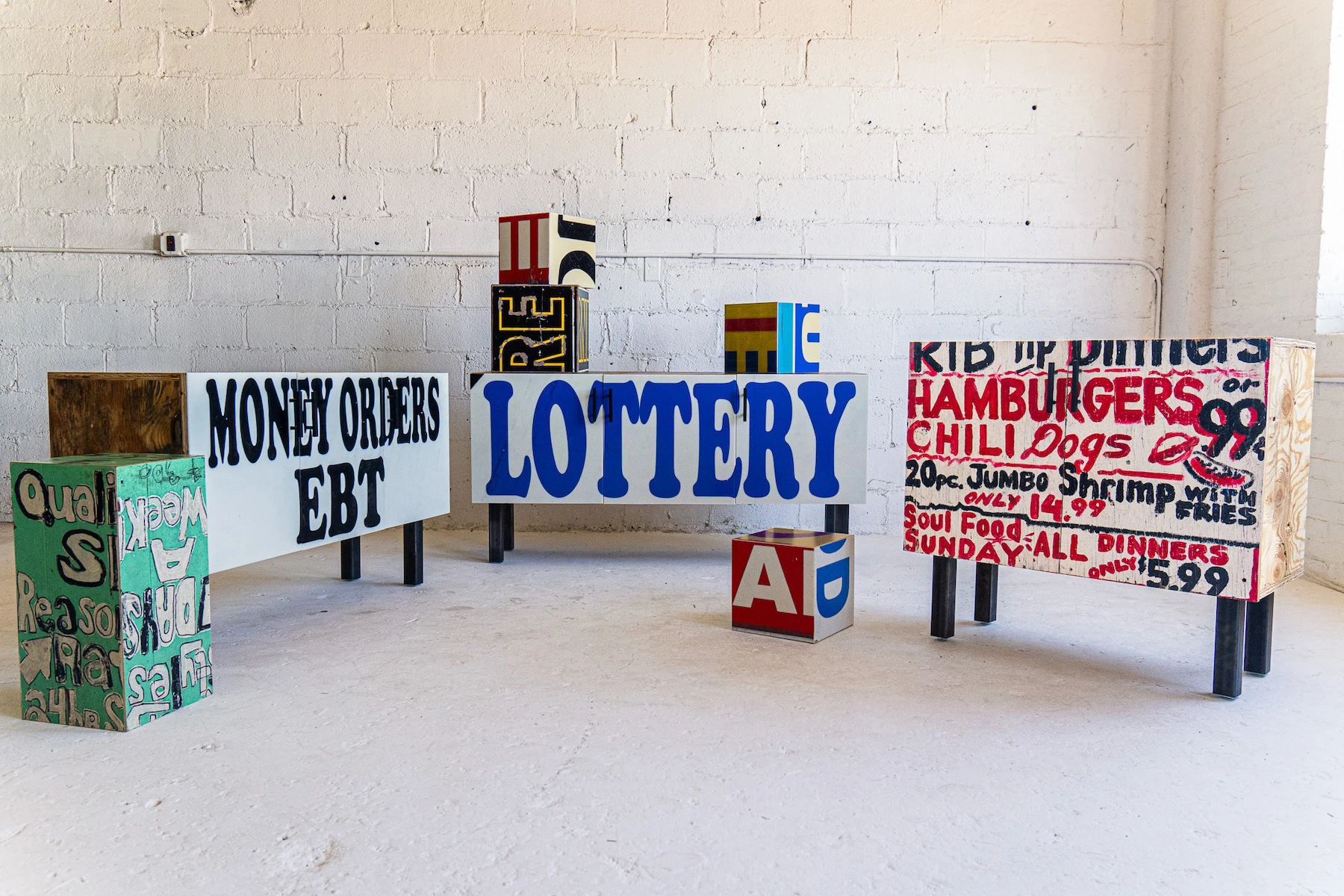
Changemakers: Woodward Throwbacks
11-Sep-2024
Bo Shepherd and Kyle Dubay design furniture and interiors featuring reclaimed materials from Detroit. They believe that reimagining objects and materials already around us inherently centers sustainability. Since launching a decade ago, Woodward Throwbacks has expanded its range of salvaged materials from wood to include stone, metal, acrylic and glass — as well as abandoned party store signs.
Interview #9 in the Changemakers series
We sat down with Bo and Kyle to talk all things Detroit, supply vs. demand, future growth, and helping their clients replace instant gratification with appreciation of design as a process.
This is the 9th in our Changemakers series – interviews with leaders in sustainable, circular and regenerative approaches in the furniture industry. Our aim is to uncover the nuts and bolts of how each leader is driving change, the potential it holds, and why it matters to the industry.
Interview #9 in the Changemakers series
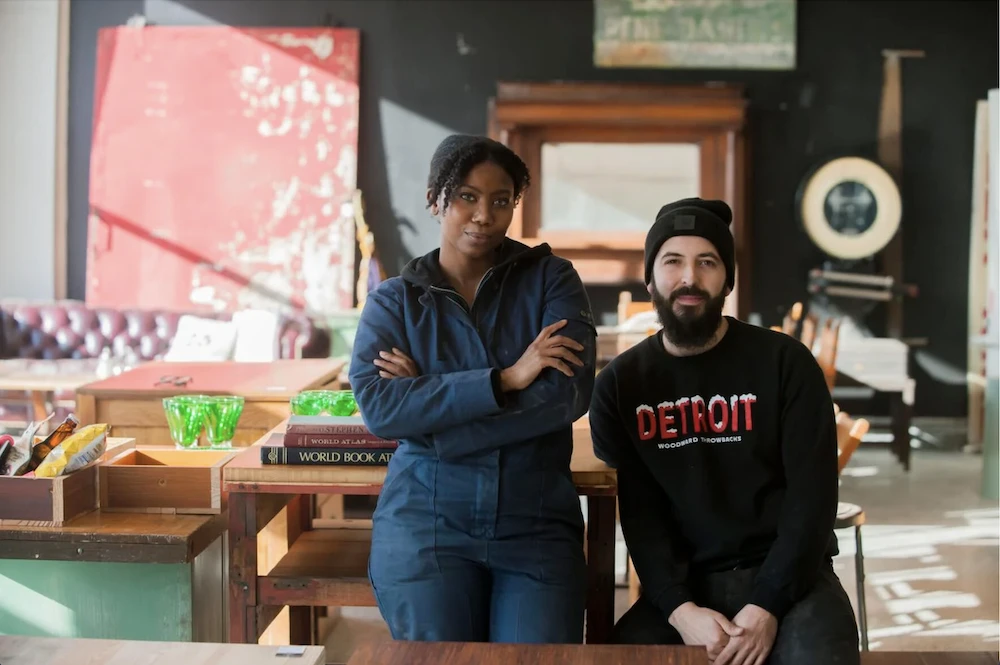
Bo Shepherd and Kyle Dubay of Woodward Throwbacks
mebl: Tell us about Woodward Throwbacks! Some sustainable brands put sustainability front and center in their marketing; you don't seem to. Where does the ethos of sustainability fit into your work?
Kyle Dubay: What we do is so inherently sustainable that we don’t think it needs to be explicitly stated. We see it as the third selling point, but not the first. First and foremost, we see people buying furniture based on price and look. Selling points like sustainability are usually further down the list.
One of the coolest things about working with sustainable materials is that the aesthetics are so interesting. You get such unique pieces. So instead of saying ‘Here's this sustainable piece,’ we come from the angle of ‘Hey, you're getting a truly one-of-a-kind piece with unique texture and wear and tear.’ I think that's ultimately what people want – knowing they don't have the same piece of furniture as their neighbor.

Woodward Throwbacks originals made from remnants of Detroit’s ‘Party Store’ signs.
mebl: Do you ever feel your business and mission are misunderstood?
Bo Shepherd: Sometimes - yes. For instance, I hate the word trash! I think when people read trash, they think that we're selling them garbage. It devalues these rich materials – that were built to last and we're giving another life to! Maybe it's up to us to share key terms so that what we do is ultimately more readily understood and appreciated.
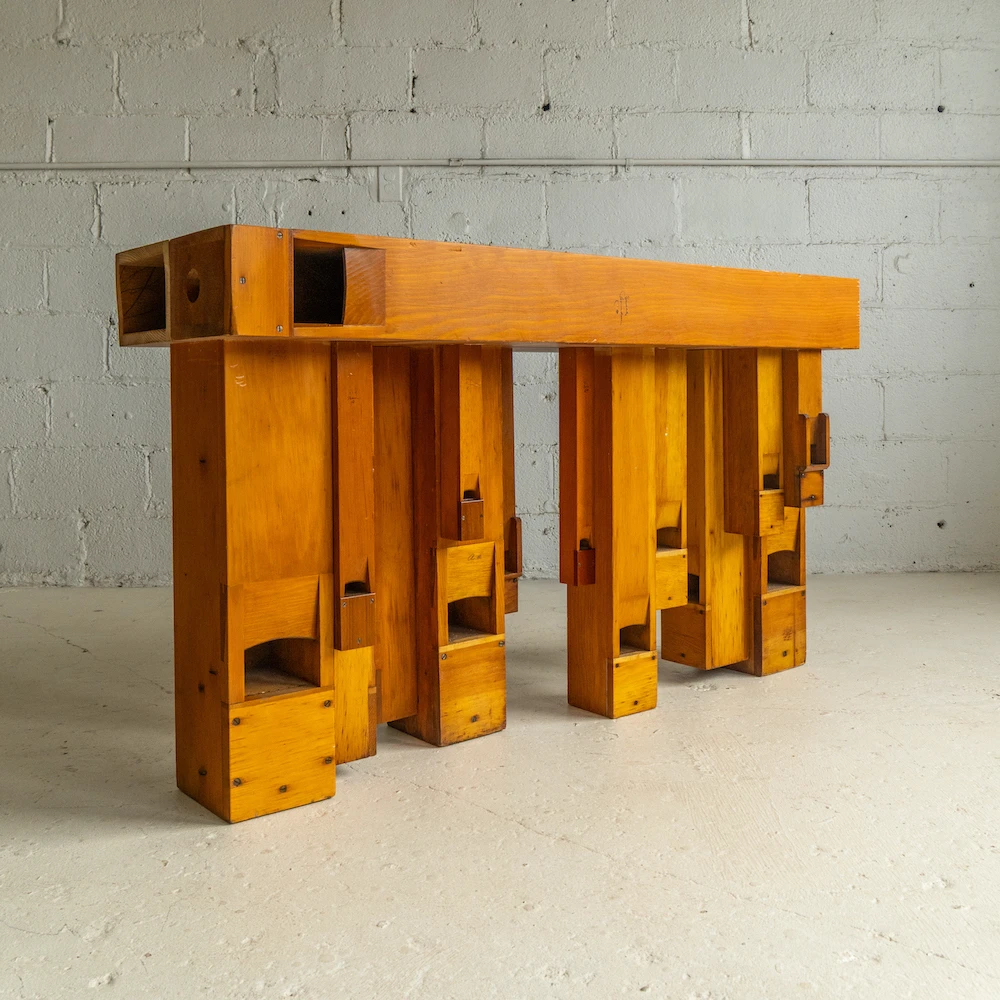
Woodward Throwbacks Pipe Organ Entryway Table
mebl: Woodward Throwbacks is deeply immersed in the materials, artisans, craftspeople, and resources of Detroit. You recently mentioned the possibility of working in other cities. What do you see as the relationship between staying local and thriving as a business?
Kyle Dubay: I think we're at a big benefit here in Detroit – as its culture outweighs its size. Detroit is a small city, yet has this rich history of manufacturing, arts, creatives — and we've benefited a ton off of that. We get to collaborate with such a great creative community, and we’re really supportive of one another.
A downside is that there's not a lot of money here for people to invest in the arts and artisans. The demand is here, but unfortunately the money is less so! So that's why we're looking a little bit outwards.
Bo Shepherd: Right. The difference between us and crazy big-box stores is that our products are not manufactured overseas. If someone is ordering a piece of our furniture, it’s important to distinguish that it's custom and hand-made by local crafters in Detroit. Naturally this takes time and creates a cost difference. Meanwhile, companies like Amazon have almost brainwashed people to expect that everything can arrive the next day.
Kyle Dubay: Right now, the whole furniture industry is in a bit of an awakening. Furniture is getting very, very cheap and throwaway — similar to fashion. This makes customers think that the average price point of a sofa is $800 - $1,000. That's just not realistic if you're buying a nicer piece of furniture. Many consumers are not educated on the difference. Other cities, like New York, have more buyers with more discretionary spending. So there’s potential benefit to us in locations like those too.
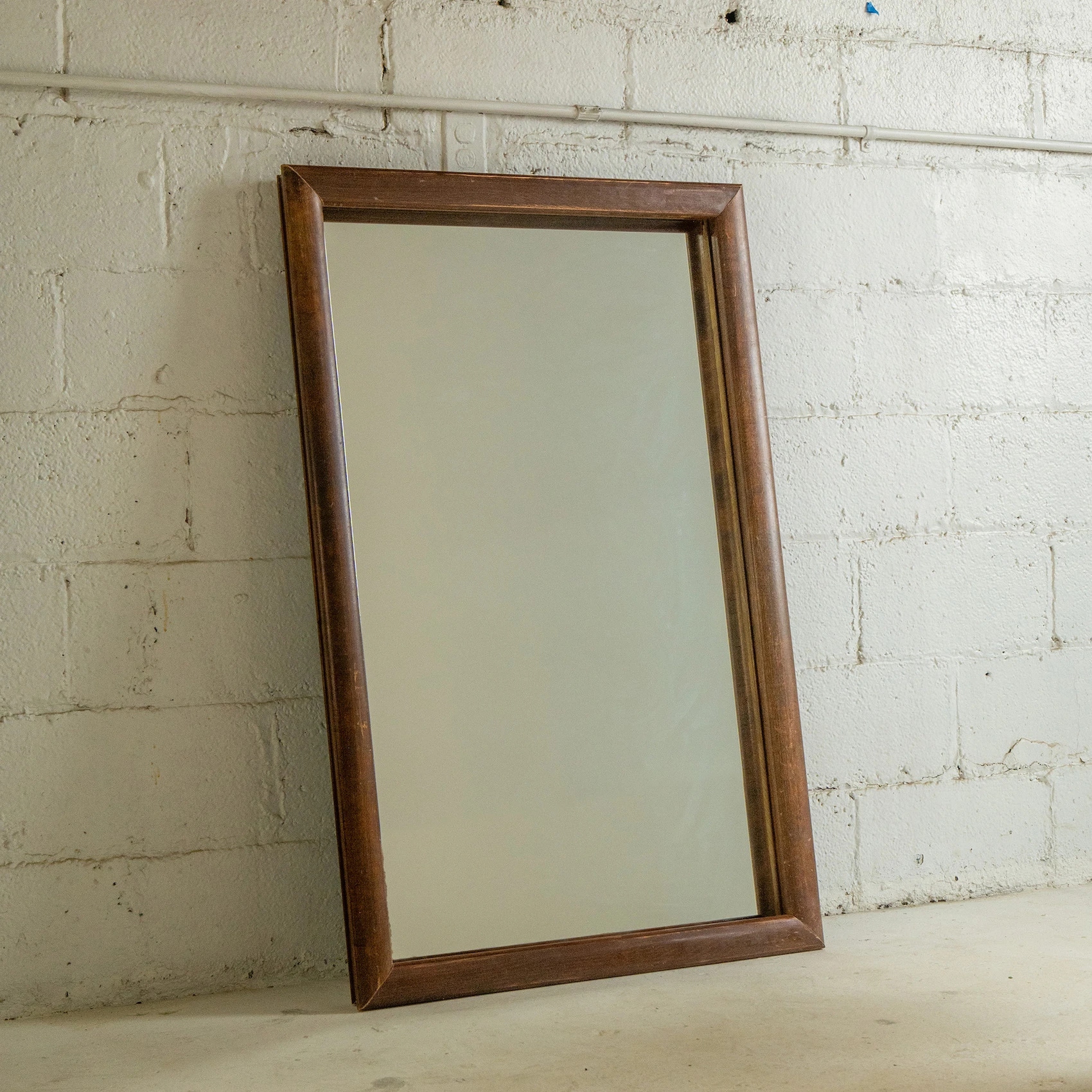
A mirror framed with salvaged stair handrails
mebl: Speaking of instant gratification, how do you think furniture and interior designers can reintroduce the public to the idea of ‘design as a journey ’– one that's slow to unfold as pieces and materials find you, versus the other way around?
Kyle Dubay: That’s definitely a big hurdle. In our interior design work, one approach is to present our clients with a loose layout. As we’re working through the phases of the plan, and new materials come around, we show them and ask ‘Hey, what do you think about this in this space?’.
By putting some flexibility into that first design, it really helps our clients prepare to make adjustments on the fly – or fall in love with the materials and designs we come upon.
Bo Shepherd: On a recent job in Grand Rapids, Michigan, for example, our client was turning a little corner store into their home. I designed the entire space, but the kitchen was my favorite — I love kitchens because I love gathering around an island!
After originally designing a beautiful reclaimed-wood island for that kitchen, Kyle mentioned he was bringing in a batch of vintage general store counters. I did a quick sketch, proposed it to the client, and they were instantly on board. Part of what they loved was the storytelling aspect, as their former-corner-store home would now have an actual counter from an old general store.
It looks amazing – probably one of the best design changes we’ve ever made!
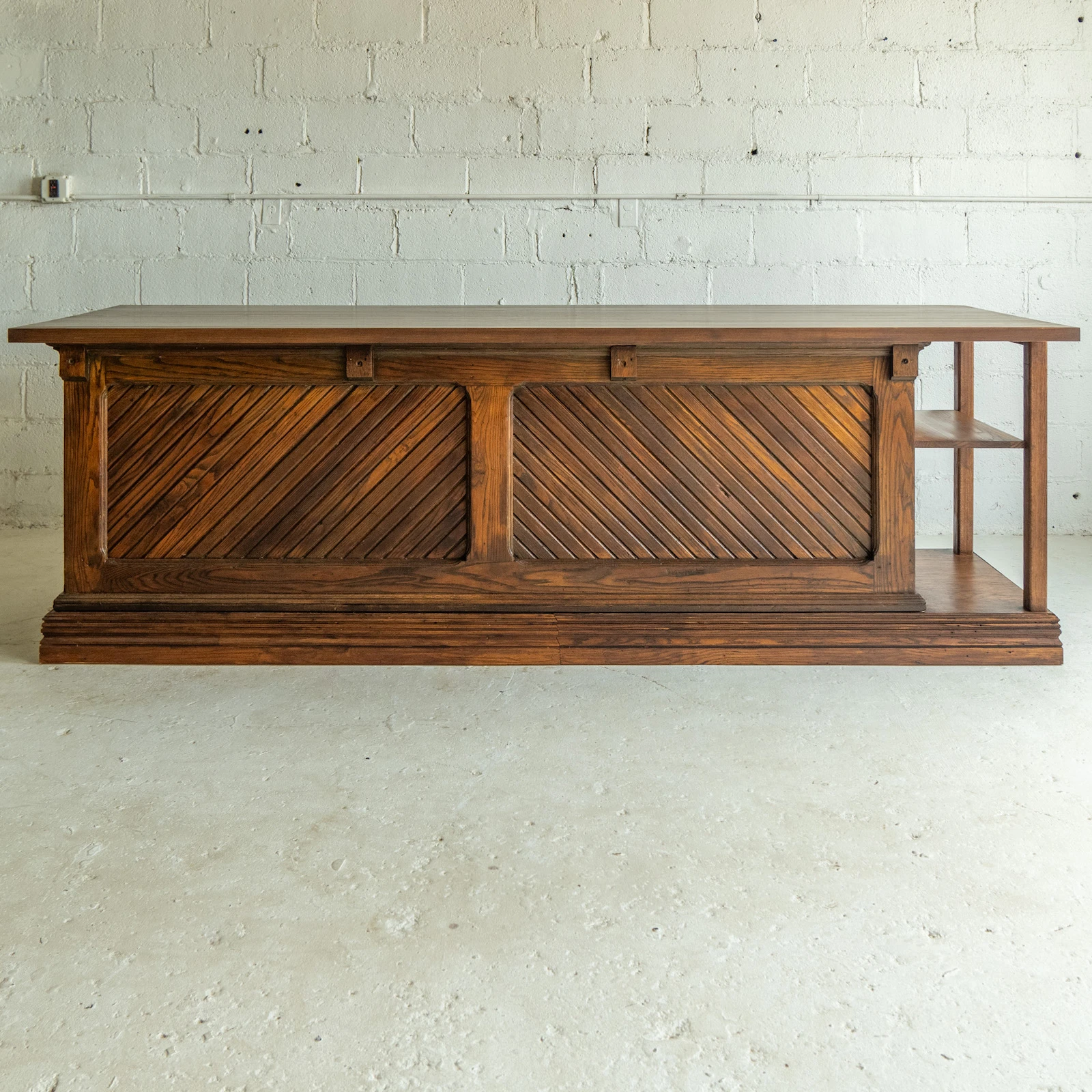
Woodward Throwbacks - Grand Rapids Kitchen Island
mebl: Do you find that those not intuitively excited about this reclaimed style come around, or do you largely work with clients who sought you out for this style?
Bo Shepherd: Consumers sometimes gravitate away from sustainable or reclaimed products because they are afraid of feeling like they live in a barn. But that’s not the case at all! We really want to change that perception.
Since we use an array of materials – such as acrylic, metal, stone, wood – our work pushes the boundaries of what reclaimed materials can look like in furniture and design. We offer variation so that clients can gravitate towards different pieces.
We aim to make our collections really refined because we also want to reach people who may not have expressed initial interest in reclaimed. We want to ensure that there's something for them too.
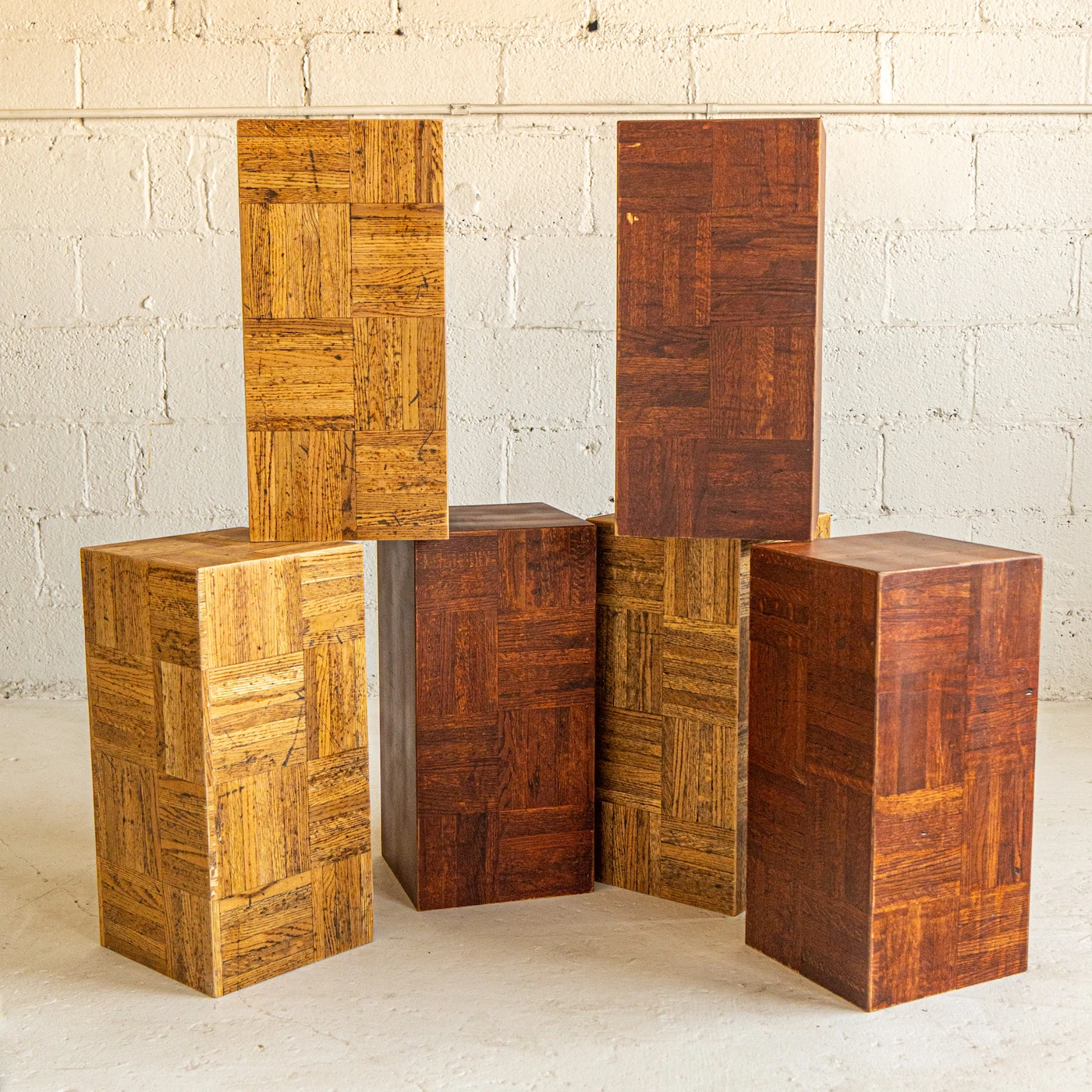
Parquet End Tables, part of the Woodward Throwbacks collection
mebl: Does the City of Detroit or State of Michigan have programs or policies that incentivize the use of reclaimed materials?
Kyle Dubay: Not that we know of. While the City of Detroit has come a long way since we first started ten years ago, creating incentives around salvaging materials seems to remain a very low municipal priority. The City emphasizes demolishing abandoned buildings as fast as possible, which is so unfortunate because there’s so much waste. One of the main problems we face is scale – there are 80,000 abandoned buildings in Detroit. Is there even a market for that much reclaimed material?
Bo Shepherd: Chicago is particularly inspiring in its various incentives that help reinforce the city, its resources and people.
If I could do something similar here, I would encourage Detroit to mandate that 20% of materials from demolished buildings be either incorporated back into the building (if it's being rebuilt) or saved and repurposed in other ways. This would encourage salvaging brick, wood, doors, tiles, hardware, windows, and glass — instead of destroying it.
mebl: What sort of municipal infrastructure would be required?
Kyle Dubay: A great start would be to incentivize reuse of construction materials and buildings. If we use Bo’s 20% model — incorporating recycled materials could be tied to a big tax rebate or offset.
With bricks for example, there’s millions out there that have been deconstructed and are ready for reuse, but realistically, who is going to use them unless the government incentivizes it? The greatest stock is the buildings that are already erected. We have to start thinking about how we're going to reuse — instead of just bulldozing.
mebl: How do you incorporate adaptive reuse — taking something and re-imagining its purpose?
Kyle Dubay: We love adaptive reuse. We’ve actually shifted our focus to it.
These days, rather than renovating houses, we’re prioritizing transforming warehouses and commercial buildings into residences. This excites us! Creatively, there's just so much more you can do with the big open spaces in warehouses and the like. When we convert them, we are essentially creating something totally new. It's fun because we get to define the new space.
Bo Shepherd: The idea behind these conversions is to take the existing landscape and design buildings that blend with the neighborhood.
Detroit has so many main streets that used to be thriving business districts. Today there are only one or two buildings left standing. If you think about the future potential growth of that neighborhood — they don’t stand a chance because the city just keeps tearing that main artery down. Whatever business district that once was, we hope to keep building on it through these conversions.
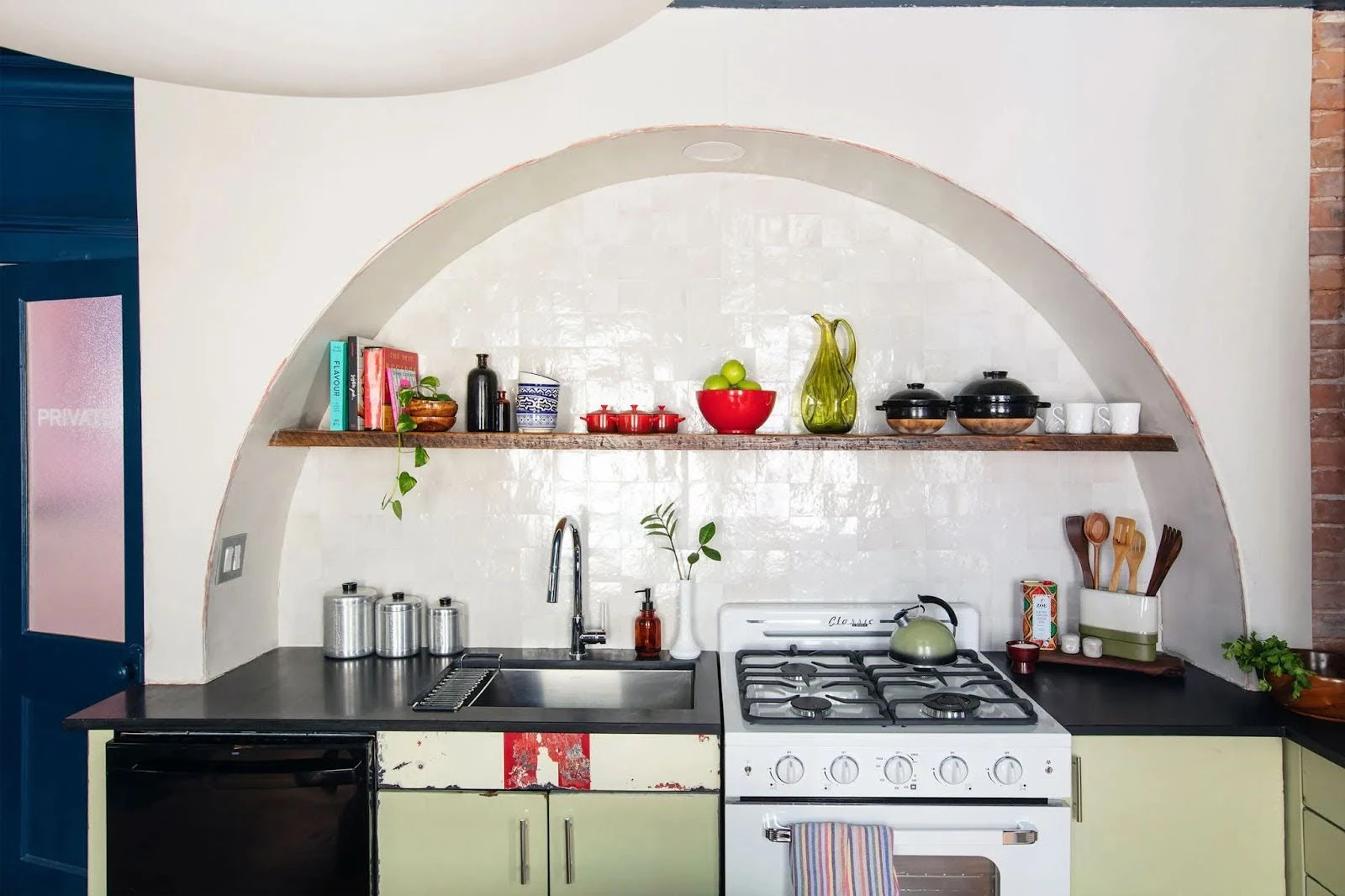
Custom-built archway with white zia tile backsplash and floating shelf made from reclaimed wood. Cabinets with salvaged porcelain enamel exterior facade panels from Hamtramck Coney Island.
mebl: Tell us what’s on the horizon for Woodward Throwbacks. Do you see expansion to other cities like New York?
Bo Shepherd: I see our business continuing to expand in the interior design sector.
Kyle Dubay: Not many firms specialize in our type of work. It's so easy to work remotely now too, which could make expansion to other cities easier. We currently have seven renovation and interior projects in the works, which is amazing. This allows us to continue to build our portfolio.
Bo Shepherd: We have some really cool projects in the works – we’ll definitely keep you posted! Big things are coming our way.
READ more Changemaker Interviews here.
